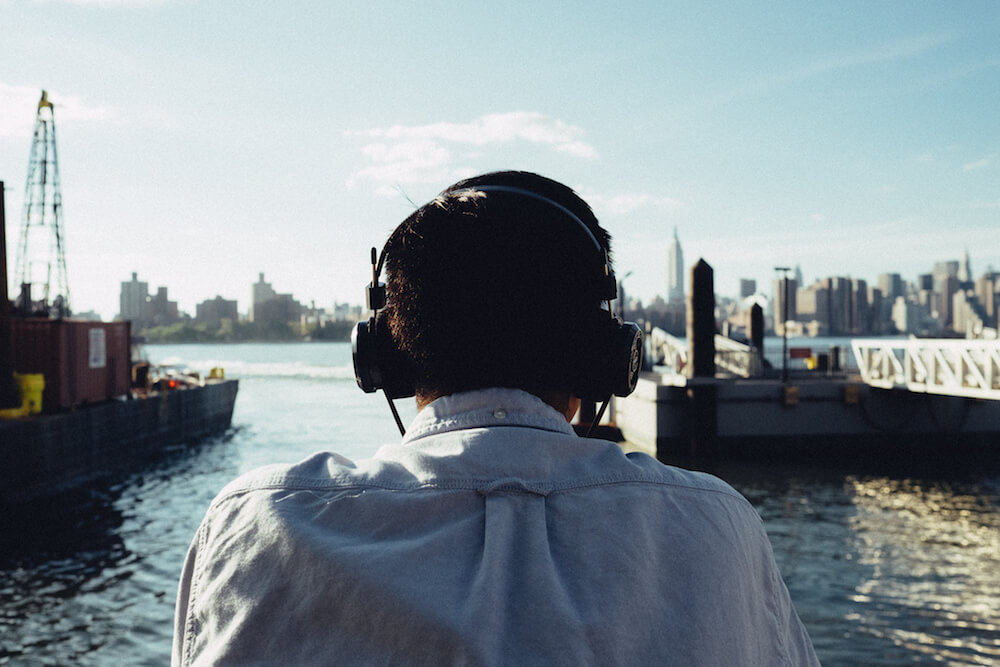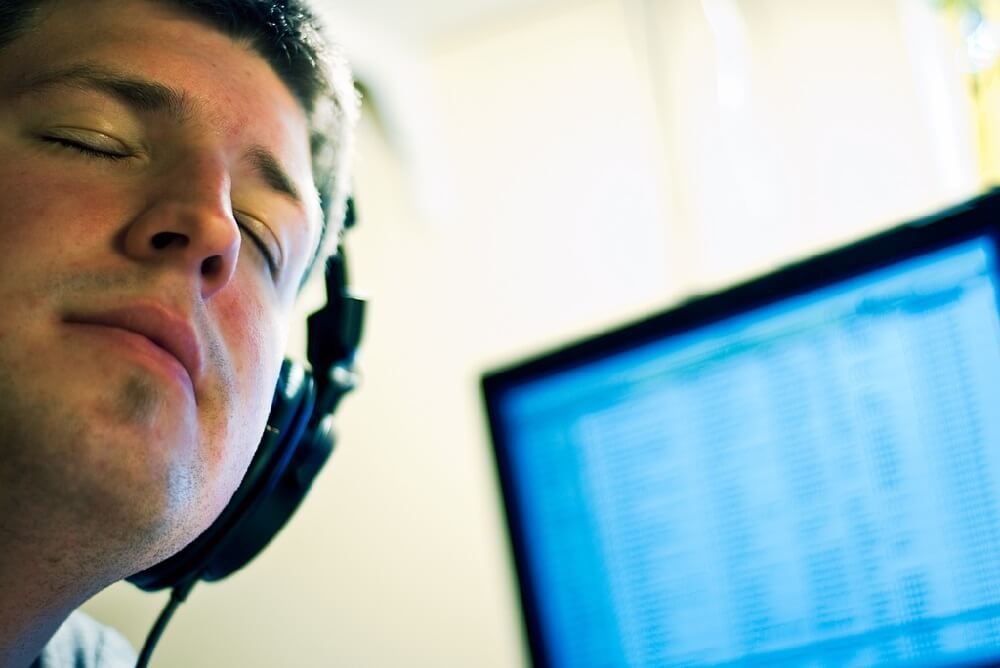We often refer to the term “sound ecosystem”. Today we decided to find out more about what it is built from and what effect it has on a person.
 Photo by Jonathan Grado / CC BY-SA 2.0
Photo by Jonathan Grado / CC BY-SA 2.0What is a sound ecosystem
The term “sound ecosystem” has many synonyms among researchers. For example, there is the concept of a sound landscape (soundscape) - a system of sound elements in the environment. It includes both natural sounds, and man-made, man-made.
The term sound landscape was introduced by Canadian composer and researcher Raymond Schafer (Raymond Schafer). He dedicated this topic to the book “Soundscape. The tuning of the world. The sound landscape according to Schafer is a composition of sounds that a person perceives in the living space.
Ecologist Brian Pianowski (Bryan Pijanowski)
speaks of the sound landscape easier - it is “cacophony, that is, a mixture of sounds of the environment and man; background, in relation to which the majority became semi-deaf ".
Raymond Schafer also became the founder of ecoacoustics, a discipline that studies the relationship of a person to the environment in terms of sound. The task of ecoacoustics is to preserve the “culture of hearing”, because, according to Schafer, the “computer” sound landscapes cannot be compared with the natural ones.
Man is a part of the ecosystem of sound, and he directly influences it. Moreover, he consciously began to do this even in primitiveness. The creation of music people
engaged even before settled out of Africa in all continents. This is one of those activities that unites all of humanity with its universal nature.
Returning to the term
ecosystem of sound - these are all the sounds that surround us. Voices, music, bird singing, the neighbor’s drill, and the noise of the subway: these are all components of the ecosystem.
How a sound ecosystem affects humans
This is not always noticeable, but the ambient sound
affects the well-being and productivity of the person. Experts
estimate how much money the Europeans lose because of the noise. The study took into account the number of lost work days, health care costs, ineffective training and reduced productivity caused by noise pollution. Then these factors were transferred to the cash equivalent and received more than 40 billion euros per year.
But the sound has a positive effect on the person. Scientists have found that white noise and the sounds of nature have a productive impact on productivity. And your favorite music will help you tune in to work - scientists recommend listening to it on the go. Read more about the influence of music on the workflow
here .
 Photo by William Brawley CC-BY
Photo by William Brawley CC-BYWhen you try to find a solution to a complex problem, and someone is sitting next to and tapping a pen on the table, it seems that absolute silence is the most productive sound. But in fact one hundred percent silence - that is still torture.
Not so long ago, scientists created an acoustic
anechoic chamber (
video ), in which 99.99% of external and internal sounds are blocked. The record for staying in this room is 45 minutes, and the creator himself lasted only half an hour. In such silence, a person hears the sound of his own heart, the movement of lungs and other sounds that he did not perceive in normal conditions. As a result, after some time people begin to hallucinate.
However, such conditions are recreated only artificially. In everyday life there is no absolute silence - the ecosystem of sound is filled with various components. Moreover, it is almost impossible to find places on Earth where there would be no man-made sounds. George Foy was
convinced of this: in different regions of the planet he was looking for the quietest places and realized that even in the most remote corners of yours, sooner or later, the sound of a flying airplane will overtake you.
The negative impact of sounds
Because of the need to shout down students in classes, 50% of American teachers
face problems with vocal cords. At the same time, the susceptibility to the speech of those students who sit on the fourth row of the ordinary class is also
reduced by 50% - they have to make more efforts not to miss what the teacher says. Another
study of the influence of sound on the educational process shows that children from “noisy” schools located near airports and roads, learn to read longer.
Noise louder than 30 dB interferes with healthy sleep. This effect practically does not affect the quality of sleep at the level of noise from 30 to 40 dB, but already at 40-55 dB the negative impact becomes noticeable to almost everyone. Noise above 55 dB is considered dangerous, causes sleep disturbances, increases irritability and the risk of cardiovascular diseases. All this is according to the WHO study (
table 5.4, p.108 ).
Extraneous sounds
affect human productivity. The maximum noise level for comfortable work is 45 dB. But the noise can be different. For example, human speech is about 40 dB. At the same time, to work when someone is extremely emotional talking next, you can hardly.
The researchers
found that in this case, the most susceptible people have the productivity of reading and writing is reduced by 66%. Experts conducted an
experiment , disguised the sounds of the office with white noise. As a result, employees were 46% better concentrated and 10% better memorized information.
How to deal with noise
By building a proper sound ecosystem, the harm from noise pollution
can be significantly
reduced . Excess noise surrounds us even in everyday situations. “Productive” noise is up to 45 dB. Water flushing in the toilet - 60 dB, laughter at a distance of 1 meter - 75 dB, punch - 80 dB, and the dog barks at all 130 dB. Everyone's favorite "neighbor man" seems to be doing it all at the same time. The walls are partly dampened by the noise, but the background is often still elevated.
Sound insulation helps to reduce noise. According to the German DIN classification, it
is divided into six levels. The first level reduces the noise by 25-29 dB, and the sixth - more than 50 dB.
Soundproofing each square centimeter of the apartment is optional. It will be enough just to deal with the most problematic areas (the examples below, of course, do not exhaust all the possibilities for sound insulation of residential premises).
If neighbors on a floor rustle , provide sound insulation of walls. To do this, you can use soundproof cladding. For example, the 55 mm panel reduces noise by 11-13 dB. It is also
worth checking outlets and heating pipes: if there are gaps around them, it is better to fill them (it is advisable for this to seek help from a professional electrician / plumber).
If neighbors are noisy from above ,
you can soundproof the ceiling: fix and putty the joints at the junction of the walls and the ceiling, check the tightness of the chandelier mounting. If this does not help, you can install a suspended ceiling with sound-absorbing plates.
Reducing the noise level reaching you from the neighbors below is the hardest thing if repairs are already made in your apartment. If the floor is still to be laid - carefully seal the joints at the junction of the floor with the walls. You can also use a soundproof floor - a layer of sandwich panels or fibreboard. Over it is the main cover. “Soft floors” - carpets and linoleum on foamed and felt basis have a sound insulation effect.
If the noise comes from the street , it is worth changing the windows to soundproof. In particular, two-chamber double-glazed windows with triplex “absorb” up to 42 dB of noise from the street.
If the noise comes from the entrance , you can think about installing a noise absorbing door - some of them
can contain up to 42 dB of noise from the outside. Another way is to install a second door.
White noise helps some people to have healthy, uninterrupted sleep. Sounds of nature have a similar effect. They will help you increase productivity and during work. At a minimum, if you turn them on in headphones, they will block ambient noise: conversations of colleagues, calls, work of office equipment. Plus, unlike music, they will not be so distracting and
will only
increase your concentration .
 Photo by Jason Corey / CC-BY
Photo by Jason Corey / CC-BYDuring work,
you can listen to music, as long as it does not distract. Try different genres and find the one that will be perceived as “background” as possible.
Music is also in the ecosystem of sound.
There is nothing bad if you are satisfied with how the music sounds on the complete headphones from a smartphone. But if the quality of music in this case does not satisfy you, it may make sense to pay attention to
specialized audio equipment .
You can listen to different acoustics in showrooms without any obligation to buy something or pay for the listening process. Andrei Kompaneets,
one of the guests of our podcast “Sound” acted in this way when he decided to conduct an experiment and get acquainted with different models of Hi-Fi acoustics - this process changed his perception of music. “Awareness of the problem comes at a time when a person hears quality speakers for the first time,”
says Andrei.
When choosing equipment, it is important not to chase after the characteristics, but to look for the sound that you like exactly. There is no perfect sound: even the most advanced equipment distorts the sound in its own way. It is important to choose the distortion of the soul.
Total
- The sound ecosystem is all those sounds that surround us: natural and man-made
- Ambient sounds affect a person’s well-being and productivity - both positively and negatively.
- Increased noise level harms the educational process and work
- A high noise level interferes with sleep, reduces productivity and increases stress levels.
- In order not to suffer from the noise of the house, carry out basic work on sound insulation.
- To improve sleep and increase productivity, try to include white noise or nature sounds in the background.
- Music is also part of the ecosystem. Perhaps you should listen to different speakers to understand the possibilities of modern audio.